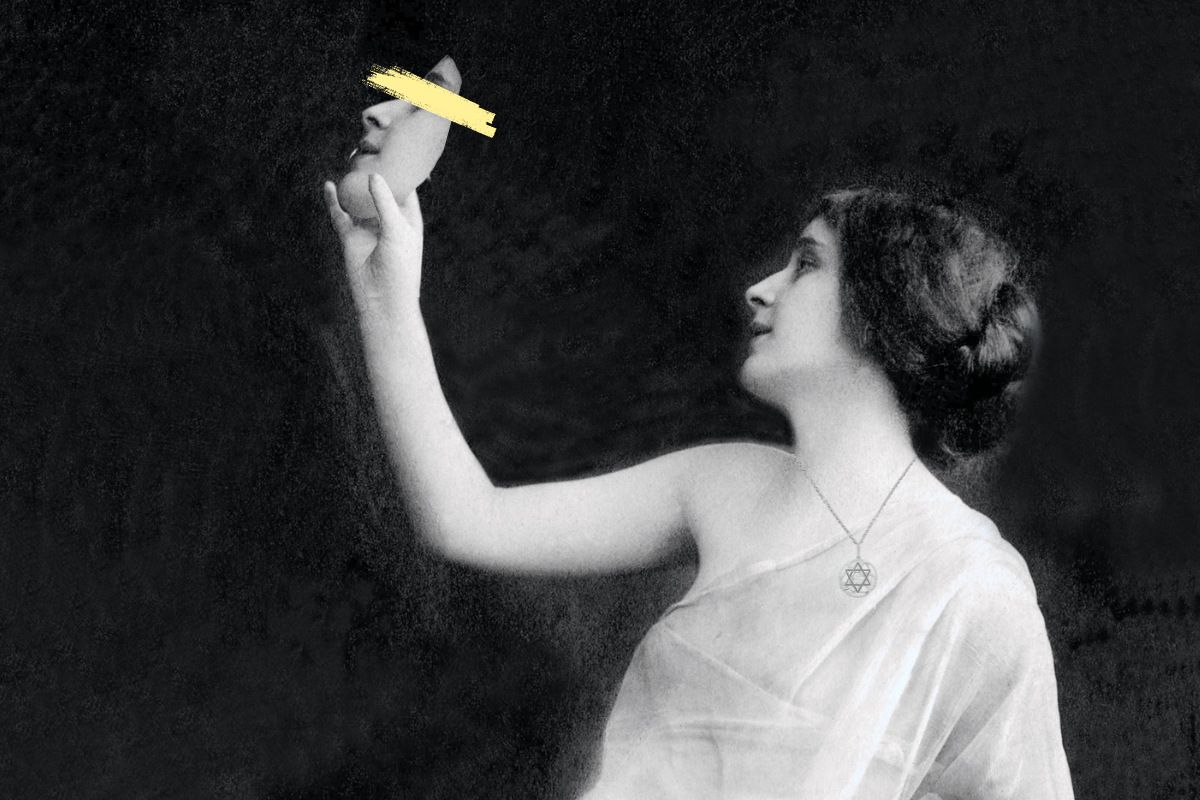In the beginning of my junior year of college, after swearing for months that I wouldn’t, I declared a minor in Jewish studies. I felt uneasy. What was I possibly going to do with this? What would my mother say? Most importantly, I wondered whether I really deserved it. Who did I think I was to study Judaism, when I’d never been more than — forgive me —Jew-ish myself?
I was raised by a Jewish mother and a Catholic father, neither of whom retained much attachment to the religions they had grown up with. I never went to church or to synagogue. I never was confirmed or received communion, and I had no bat mitzvah. In terms of Judaism, we had Rosh Hashanah, Yom Kippur, Hanukkah and Passover — which we mostly celebrated with a variety of delicious family meals.
In the town where I grew up, this was nothing out of the ordinary; many kids my age were “half and half” or something similar. I didn’t even identify as Jewish until my teens, when I became aware of Judaism as a cultural category. By the time I got to college, I was vaguely interested in learning more about this culture, its foundational texts, its history. In my sophomore year, I signed up for a Hebrew class, interested in what I might have missed by not attending Hebrew school in my tweens. This led me down an irreversible path: a second Hebrew class, a class about gender in the Hebrew Bible, and a passion for Jewish studies I’d never expected to possess.
On the first day of Hebrew class, I sat surrounded by people who all said things like, “I don’t know any Hebrew at all! Only the alphabet, a few prayers and my Torah passage.” I sank further in my chair, trying to find some way to explain that I really knew nothing. I couldn’t even remember what the letters on the dreidel meant. I understood that we were all beginners, but the place where everyone else was beginning from felt like a different continent than mine.
Although I’ve progressed a lot in my studies, this feeling — what I might call “Jewish imposter syndrome” — has never really gone away for me. It’s the little moments when I’m caught off guard by the gap between me and others, like admitting in Jewish food class I had only ever eaten gefilte fish from a jar, and seeing the subsequent shock on the faces of my classmates. I walked past our campus sukkah for weeks without realizing what it was for. The transition from a town with many Jewish people to a small college with few made it more difficult; I sometimes felt as if I was my non-Jewish friends’ only reference for what Judaism is, and often worried that my answers to their questions — even the silly ones, like “could someone who eats kosher go on “Survivor?” — would be inaccurate because I just didn’t know enough.
I’m always reminded no matter how much I read or how many questions I ask, I’ll never know what it was like to celebrate Purim as a child, or to know the sound of each prayer without thinking. It feels like I’m constantly trying to catch up with my peers, running a race I didn’t know I was supposed to start running a long time ago. I don’t in any way fault my parents for this; I think it was a good thing I never really got involved in religion when I was younger, especially being aware of the pressures that can come from feeling forced into a belief system at a young age. But my choice of this field of study has certainly turned my chill, nonreligious upbringing into a little bit of a hindrance.
I’ve spoken to many of my friends in Jewish studies about this feeling, and the response I almost always get is, “I feel like that, too!” It seems many of us experience Jewish imposter syndrome. This knowledge, in itself, is comforting. I’m not alone in feeling this way, and other Jewish people — Jewish people I like, respect and look up to — share the same sentiment. So I asked some of them about how to make it better.
One responder who asked to be identified as T.B. summed up their advice with an oft-used phrase: “A Jew is a Jew is a Jew.” They added, “Judaism is inherently against judging others who practice in different and less orthodox ways.” My classmate Audrey worded it a little differently: “Whatever Jews do is Judaism.” There’s no limit on the ways one can find and make meaning as a Jewish person, whether traditional or not. There’s an infinite number of ways to live a Jewish life, and none are less valid or important than others. Several people also brought up assimilation. A friend told me “a lot of my ‘not being Jewish enough’ is a result of my ancestors trying to survive, and part of the reason I exist at all!” After centuries of Jews hiding their religion and adopting their surrounding culture in order to avoid persecution, how can we blame ourselves for not growing up with an innate knowledge of the traditions they were unable to practice safely? Instead, we can be grateful that they kept us safe, and feel lucky for the chance to rediscover their culture with less fear.
I try to remember that for almost every moment in which I’ve felt hopelessly not Jewish enough, there’s been a moment when a fellow student has told me they were impressed by something I said in class. “You know so much!” they say, or, “You always have something smart to say.” I remind myself that even though I don’t always agree with their assessment, seeing my answers instead as stumbles toward ideas I feel unable to reach, these moments prove that I am dedicated to understanding, even if I sometimes feel embarrassed about it. “Being Jewish is a skill!” Audrey says. “Jewish skills take practice.”
Judaism is a religion of constant learning. That’s why the Talmud is called the Talmud — from word roots meaning “teach” and ”learn.” To be Jewish is to study, and I do, diligently reading over my texts, googling every word I don’t recognize, mouthing each syllable of a Hebrew sentence in an attempt to work it out myself before I have to find the answer somewhere else. Sure, I’ll never know everything, but I gain more knowledge each day. And I am always choosing to keep learning, gaining Jewish skills, acquiring Jewish meaning. This process and this experience are so beautiful, and I feel proud of myself for undertaking it.
To everyone else who deals with Jewish imposter syndrome, you are not an imposter. No matter your relationship with Judaism, you are still Jewish, and you still belong. I’m proud of you, too.



